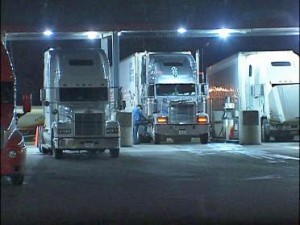Demand fuels the commercial sex industry. Without buyers seeking paid sex with children, traffickers would not have a market to sell young children for sexual exploitation. To achieve significant deterrence, severe penalties must be in place to adequately punish the crime of purchasing sex with a child. This dynamic is illustrated in the case below.
 Operation Precious Cargo took place in 2005 in Pennsylvania. During this operation, the stretch of US Route 11 connecting Interstate 81 to Interstate 76, locally known as the “Miracle Mile” for the high prevalence of commercial sex, was the main target. Along the “Miracle Mile” there are three truck stops, three truck terminals, and sixteen motels that were investigated by law enforcement during a sex trafficking sting. Of the 151 victims of prostitution found at just one truck stop in Harrisburg, Pennsylvania, 45 were minors— the youngest was only 12 years old. If this sting happened today, buyers in Pennsylvania could face a third degree felony with a fine of up to $15,000 and imprisonment up to seven years. However, if this sting happened in Oregon, for example, the buyer may face only 30 days after the second conviction.
Operation Precious Cargo took place in 2005 in Pennsylvania. During this operation, the stretch of US Route 11 connecting Interstate 81 to Interstate 76, locally known as the “Miracle Mile” for the high prevalence of commercial sex, was the main target. Along the “Miracle Mile” there are three truck stops, three truck terminals, and sixteen motels that were investigated by law enforcement during a sex trafficking sting. Of the 151 victims of prostitution found at just one truck stop in Harrisburg, Pennsylvania, 45 were minors— the youngest was only 12 years old. If this sting happened today, buyers in Pennsylvania could face a third degree felony with a fine of up to $15,000 and imprisonment up to seven years. However, if this sting happened in Oregon, for example, the buyer may face only 30 days after the second conviction.
30 days.
This is the reason for the Protected Innocence Initiative, because children deserve a standard level of protection no matter what state they live in. The Protected Innocence Challenge is designed to reveal these critical gaps in legislation so concerned activists and legislators can work in proactive partnership to strengthen state law to better protect children and prosecute the perpetrators.






